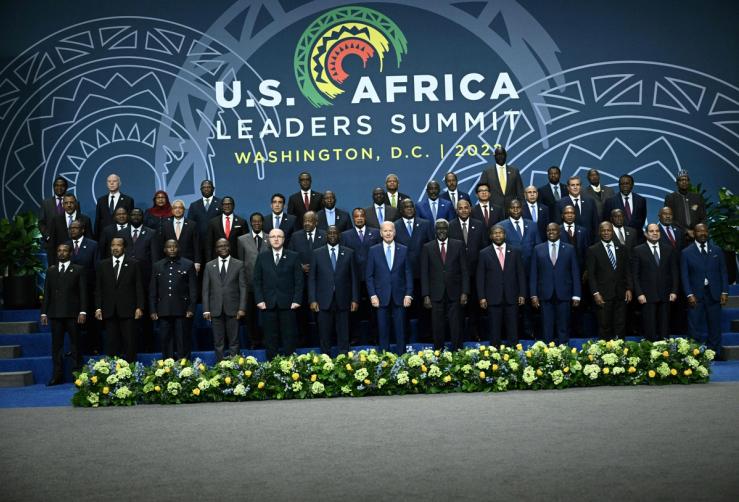The Scoop
Judd Devermont, the special assistant to U.S. President Joe Biden on African affairs, will step down from his post by the middle of February to join an Africa-focused private equity firm, according to two people with knowledge of the plans.
Devermont, who joined the White House staff in October 2021 as National Security Council Senior Director for African Affairs, was the author of the influential “U.S. Strategy Toward Sub-Saharan Africa” white paper for the Biden administration, which was announced in August 2022. The strategy was followed by the U.S.-Africa Leaders Summit in December 2022, in which Biden pledged $55 billion towards supporting a revamped vision for the U.S. on the continent.
In this article:
Know More
Devermont is joining Washington D.C.-based Kupanda Capital, a private equity investor whose Africa-focused portfolio includes Fraym, a geospatial data company, climate fintech platform Nithio , and Lagos-based music label Mavin Records whose roster features some of the hottest Afrobeats stars. He will have a role as the firm’s Operating Partner, focused on innovation.
“The world is more complicated than ever, and navigating is very hard but I can’t imagine someone better for all that,” said Bobby Pittman, founding partner at Kupanda, who said he had a longstanding relationship over many years with Devermont before now.
The U.S. presidential election will take place in November. There is typically a shake-up in White House staff in the run-up to presidential elections as the team retools for the campaign.

Yinka’s view
Devermont is a veteran Africa specialist who relished influencing U.S.-Africa policy from the inside, having previously worked as a CIA analyst and at the U.S. diplomatic service with stints in Nigeria, Somalia and South Africa among others. While there were several obvious highlights during his tenure, such as the U.S.-Africa strategy paper and December 2022’s Leaders’ summit, there was also a higher profile for U.S.-Africa affairs in general terms. This included 17 U.S. cabinet level visits to the continent last year — and ongoing this year with Secretary of State Antony Blinken’s current four-country tour. It also saw the U.S. lend support to Africa securing a third seat on the IMF’s executive board and become a permanent member of the G20.
This change in approach was striking because of what it followed, as much as anything else. The Biden administration immediately followed the Trump years that were colored by an abrasiveness and dismissiveness towards Africa. That was a time when African affairs were almost only ever discussed only in the context of confronting China or other vaguely conceived notions. So, in a sense, a U.S. president discussing Africa with some level of thoughtfulness and insight was a welcome relief for those who care about appearances.
In reality, the difference in the substance of the policy is less clear. U.S-Africa policy is one of the few remaining areas of bipartisan agreement on Capitol Hill and the Biden administration is as concerned about China and Russia’s influence in Africa as the previous administration — they’re just been more considered about it.
It was unclear who will take over from Devermont as we went to press but it’s unlikely to be a long-term appointment given the election coming up in a few months.
Room for Disagreement
Despite all the talk of numerous visits to Africa by Biden administration cabinet members, including Vice President Kamala Harris, Treasury Secretary Janet Yellen, and the U.S. ambassador to the UN Linda Thomas-Greenfield among others, some watchers have called out Biden’s reversal on a promise to visit the continent in 2023. While both supporters and critics acknowledge a visit would be mostly symbolic, it has been noted that Biden visited two countries at war in Ukraine and Israel, rather than make a visit to Africa. Critics note that the value in the symbolism of a presidential visit is not to be underestimated, alongside the investments the U.S. is already making.


